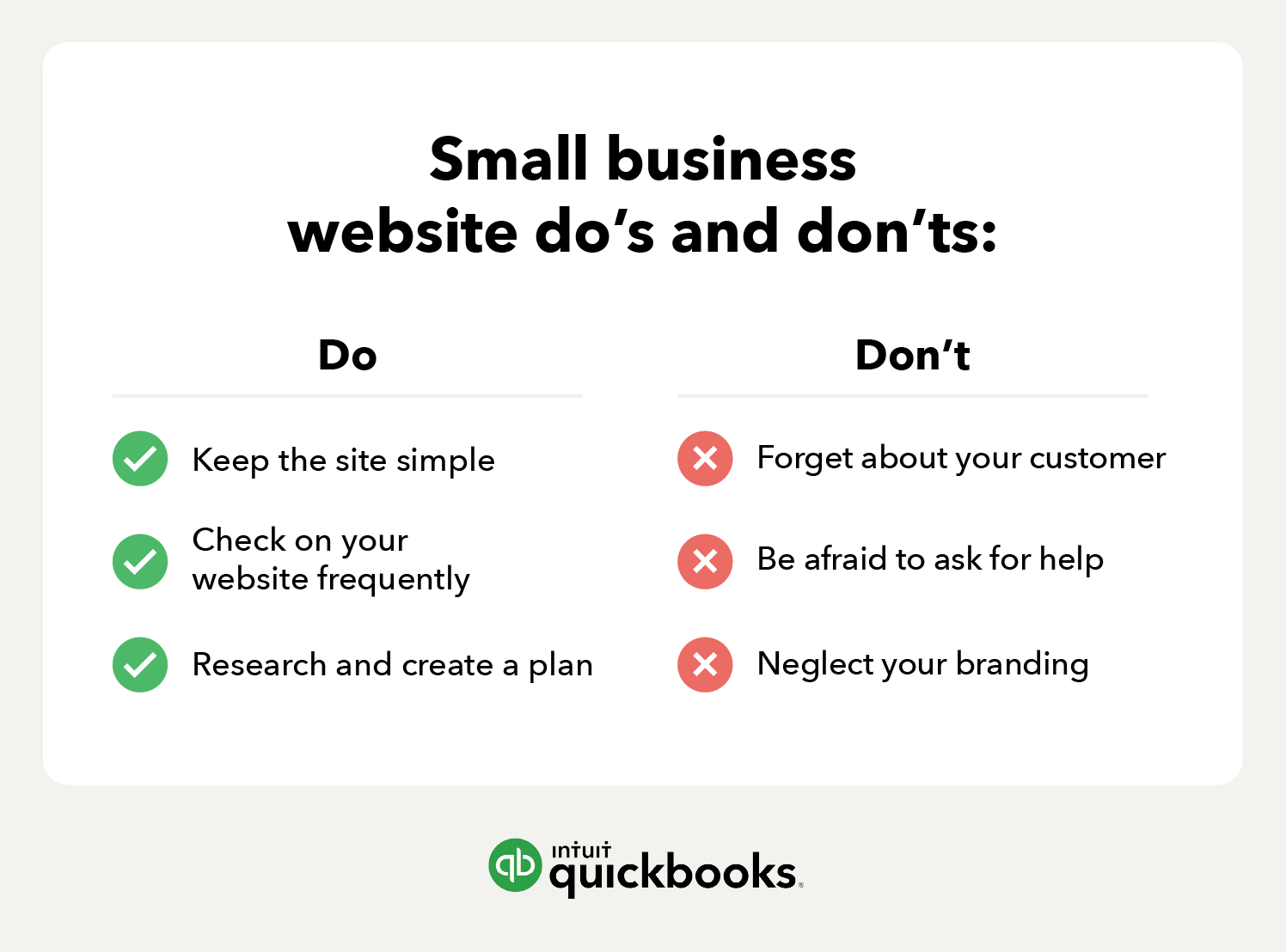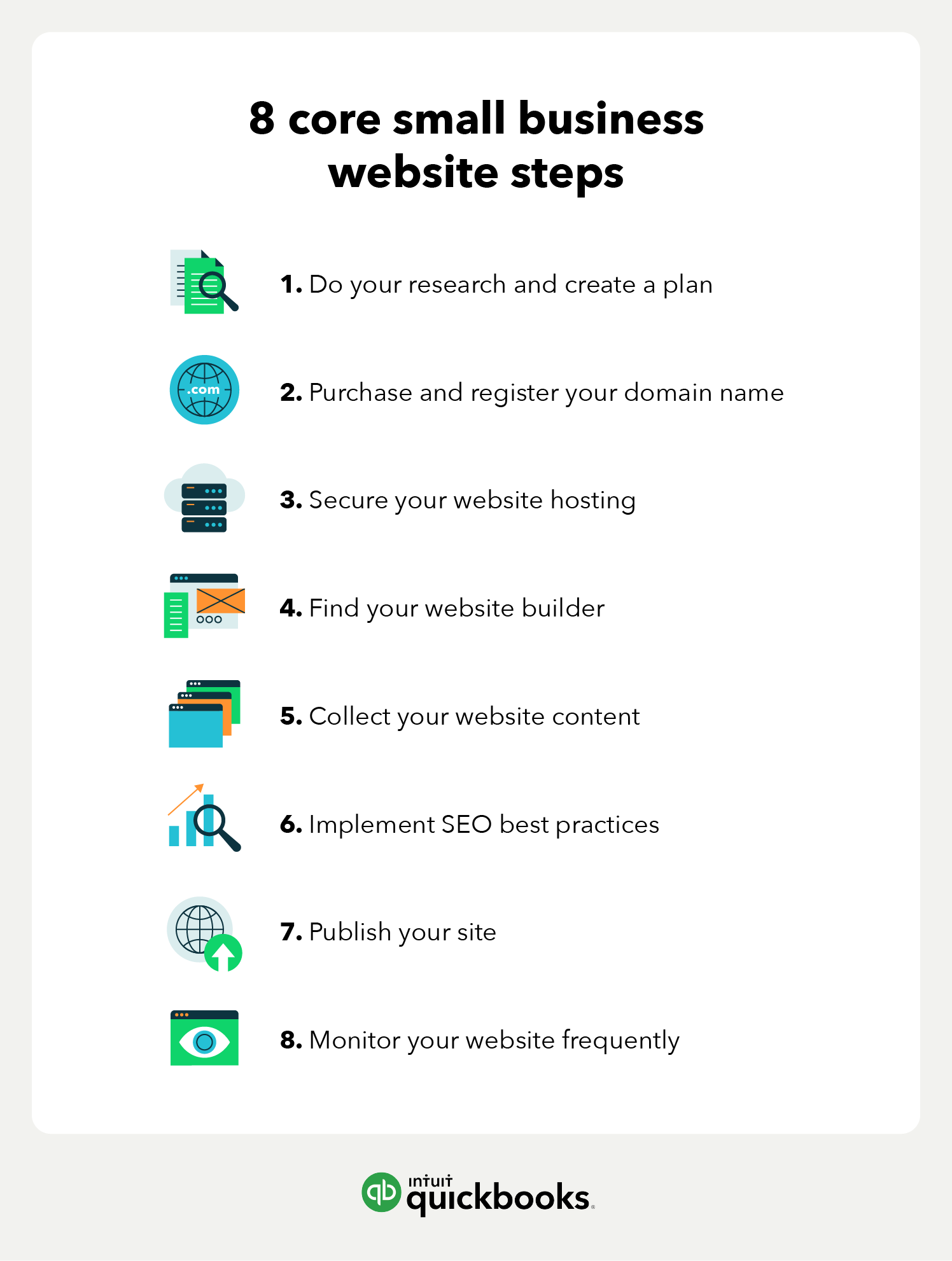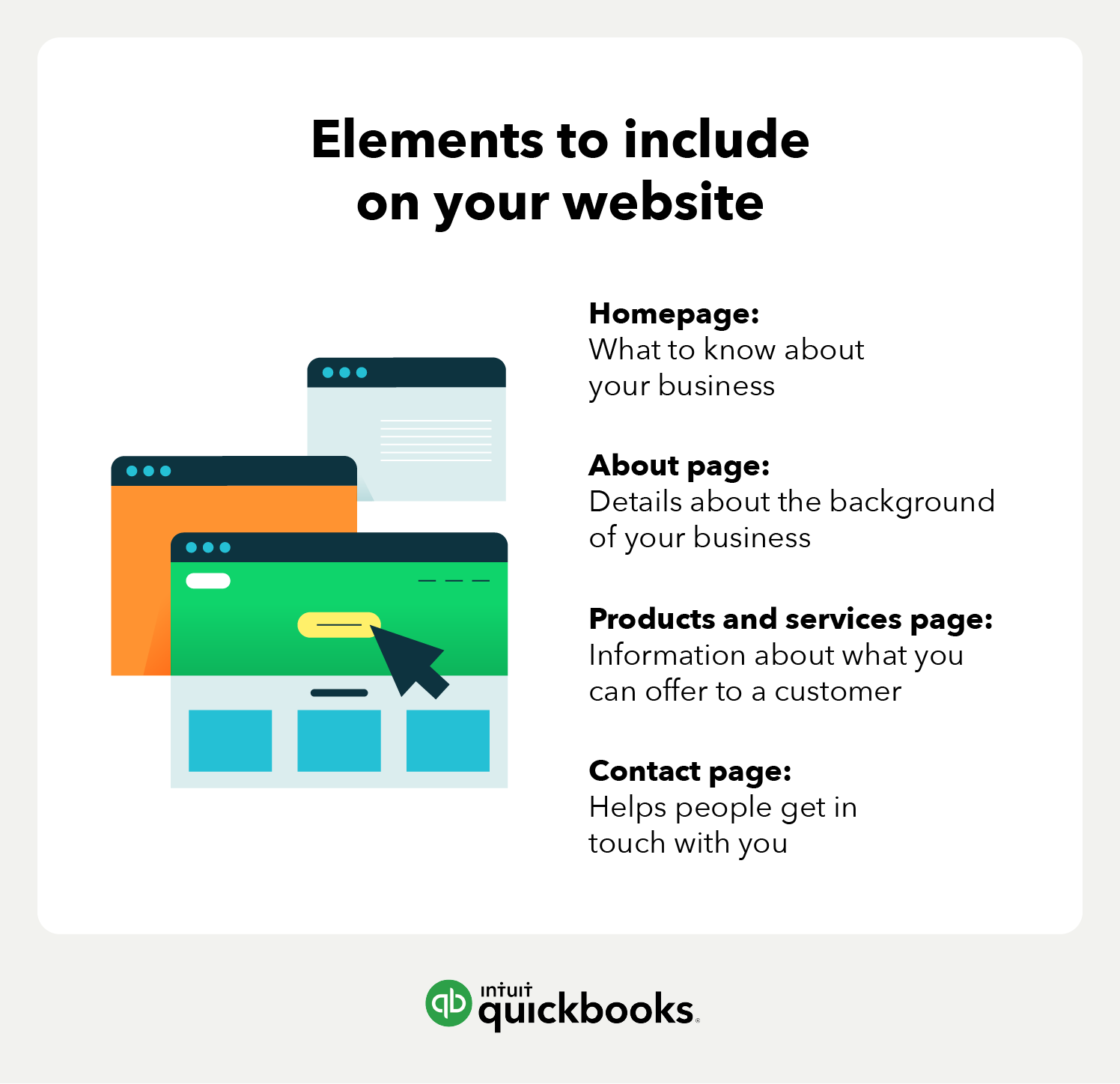First things first: You need a domain name. This is just a fancy way of saying the URL or website address (starting with “www”) that people will use to get to your website.
When it comes to choosing your domain name, you want it to be something simple and relevant to your business. Ideally, it’ll be intuitive enough for your customers to remember easily.
Let’s say you’re opening your own bagel shop called The Corner Bagel Shop. You’d want your domain to be something simple and to the point, like www.cornerbagelshop.com. However, you actually have to buy it before you can claim it.
Where do you purchase a domain name?
You can purchase a domain name online from a variety of hosting sites. Today, almost everything you need to build your business website—your domain name, hosting service (which we’ll talk about next), templates, and more—is included in one platform or website builder. Something like Squarespace or Wix will get you everything you need all in one place.
But if you’re looking to just purchase a domain to get started, there are plenty of places you can do that. These site builders include:
While using the hosting company's site, search for the domain name that you want to use. If it’s available, you’ll purchase it and fill in your information—and you’re the proud new owner of that domain. We cover the comparisons of the different inexpensive website options below.
What if your domain name is already taken?
It’s not uncommon that the domain name you want to use is already taken and unavailable for purchase. There are a few things you can do, including:
- Change the ending: It’s true that .com endings are the most common (and they’re probably your best bet if you can swing it), but there are other options you can use, like .net, .info, or .us.
- Add another word: Even adding one small word can make your domain different enough to be available. So if www.cornerbagelshop.com is taken, you might be able to secure www.thecornerbagelshop.com.
- Add your location: No dice? If you're a local business, try incorporating your location in some way. For example, www.nycornerbagelshop.com might be available.
- However, this might limit the site’s relevancy if you plan to expand outside of the area.
How much does a domain name cost?
Domain names usually cost between $9 and $15 a year. For example, Google Domains says that purchasing www.cornerbagelshop.com will cost just $12 per year. Exactly how much you’ll need to spend will vary, but planning for $10 to $20 per year for your domain is probably a safe bet.
3. Secure your web hosting provider
The idea of website hosting can feel a little technical and complex, but think of it like this: It’s where your website gets stored. The information on your website needs to live somewhere, and that’s the job of a hosting site. It stores that information and then makes it accessible to visitors.
There are two types of hosting for websites:
- Hosted: Your website is built on a ready-made website builder or content management system like Wix or Squarespace. Hosted websites are great for when you’re just getting started versus starting from scratch.
- Self-hosted: You purchase hosting separately and then build your own website from scratch. A self-hosted business site is ideal if you’re more advanced and are looking to add more features and customization.
With that in mind, you’ll likely end up purchasing your domain and hosting all in one spot: from the website builder you choose (which we’ll talk about in the next section). If you decide to purchase hosting separately, most of the domain providers we listed above also offer hosting for the domain you choose.
4. Find your website builder
There are several website builders available that will offer the following things wrapped up in one solution:
- Domain name
- Hosting
- Easy interface to design and build your website
A website builder is a great choice for small business owners who need to create a simple website but don’t necessarily have a lot of experience.
As you explore the different website builders available, keep in mind the features you need. For example, will your bagel shop need e-commerce functionality so people can order bagels and seasoning online? That’s an important consideration as you evaluate your options.
Once you know what you’re looking for, it’s time to look at the different builders. Some of the most popular ones include:
- GoDaddy
- Best for: Businesses that need to get a simple website set up fast
- Price: The basic plan starts at $6.99 per month
- Shopify
- Best for: Businesses that plan to build an e-commerce site
- Price: Plans start at $29 per month
- Squarespace
- Best for: Businesses that want a huge selection of website templates
- Price: The business plan starts at $18 per month
- Weebly
- Best for: Brick-and-mortar businesses that also want smaller e-commerce functionality
- Price: The professional plan starts at $12 per month
- Wix
- Best for: Businesses that want an easy-to-use interface
- Price: The business plan starts at $23 per month
Using these platforms, you can get your domain, hosting, and templates that make it easy to design a beautiful, impressive website for your small business.
As you explore your options, you’ll likely also run across WordPress. It’s one of the most popular website builders around, with an estimated 30% of websites running on the platform.
However, it’s important to note that WordPress has two different plugin options for websites—and they can cause a bit of confusion. Here’s the gist:
- WordPress.com: This is the company’s hosted website builder, meaning you’ll build your website on WordPress’s platform. You’ll need to purchase a domain elsewhere and register it with WordPress.
- WordPress.org: This is by far the more popular WordPress option. Websites built using WordPress.org are self-hosted. They’re completely customizable because there’s no drag-and-drop builder—meaning you’ll likely need to work with a web designer to build your website.
There’s no shortage of options, and there’s no one right choice for every type of online store, business, or business owner. Nonetheless, going with Wix or Squarespace is a safe bet to create a functional website without a lot of stress.
5. Collect your website content














